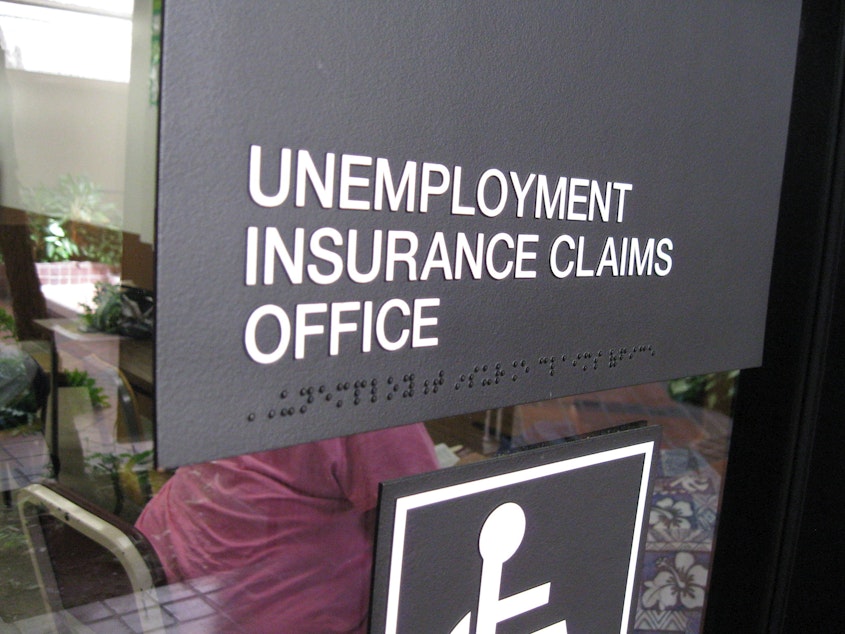Massive wave of unemployment claims as Washington faces COVID-19

Out of work and ordered to stay home. That's the situation for thousands of Washingtonians this week because of the coronavirus restrictions.
Paige Browning has the latest developments.
We've just shattered records nationwide, statewide as well on how many people are filing for unemployment benefits. Just another outcome of this coronavirus outbreak. Tell us about the numbers.
Nearly 3.3 million Americans applied for unemployment benefits last week. This is a staggering number. It's actually five times worse than the last record week of unemployment applications.
In Washington state, 133,000 people filed for unemployment last week alone. This is 133,000 people who lost their job in just one week's time. And yes, that is a record in Washington.
For context, in the same week last year about 5,000 people in Washington applied for unemployment. The situation is worst in Spokane County, which had the biggest jump and claims. King County had a big jump as well -- 37,000 people filed for unemployment last week just here in King County.
This is just a tsunami wave of claims. Can all of them be processed? And can they be processed in a way quick enough that it makes a difference for people?
Quick is really the question here. There is one department in the state that handles this, The Employment Security Department. Governor Jay Inslee acknowledges that they are overwhelmed with claims This is huge, but he says they are dedicated to helping everyone who qualifies:
“I want to reiterate that our employees are going to be working really hard on this. I wish we could all tell people that checks could go out at noon today on that, but I think people realize it's going to be some period of time till we can get this system up and running for this huge expansion of needed help for people.”
Washington state is making unemployment insurance and paid sick leave available to people who lost their job because of coronavirus. There's a chart of this on what you can qualify for on the Employment Security Department website.
We're also learning more about how many people might get COVID-19 in Washington. The governor put out some modeling this past week. What did we learn from that?
What Inslee released is a graph chart showing how fast the cases are spreading in Washington. We're at about 2,600 cases now of COVID-19.
[Please note: The number of reported cases in Washington state rose to 3,207 after this interview was recorded March 26, 2020]
It shows that, overall, it's still spreading, but not as fast as before. But that is the state average and Inslee had some details about the local area:
“While we've been able to lower the curve just a little bit in the central Puget Sound core, we are not lowering it in other areas in the in the state of Washington. Because in many areas of the state, we're not bending the curve, and those communities are looking for a wave of fatalities in their communities if we're not successful for doing that.”
That curve is the curve of cases of when we meet the peak and eventually start improving this situation. He says this is why the Stay at Home order is so important. We have to get the curve to go down. It's not yet
There is a lot of pressure on healthcare workers right now, to say the least. What are some of the ways that they are getting support?
We're hearing a lot about setting up makeshift hospitals and trying to get more masks and gloves. But the one big message we're hearing is there's a push to get more nurses and doctors hired. This is to alleviate the strain on existing healthcare workers and to get ready for a possible surge in patients.
The city of Seattle's trying to get hotels involved so they could put up hospital workers who don't want to infect people at home, or can sleep close to where they work. Mayor Jenny Durkan spoke about this today on KUOW’s The Record:
“We've got that underway. It's not perfect yet, but the hotels in the city have been very great in coming forward and we already locked out one block of rooms and we're trying to lock down more.”
Just another example of kind of this all hands on deck getting the hospitals and nurses matched up.
Listen to the interview by clicking the play button above.






